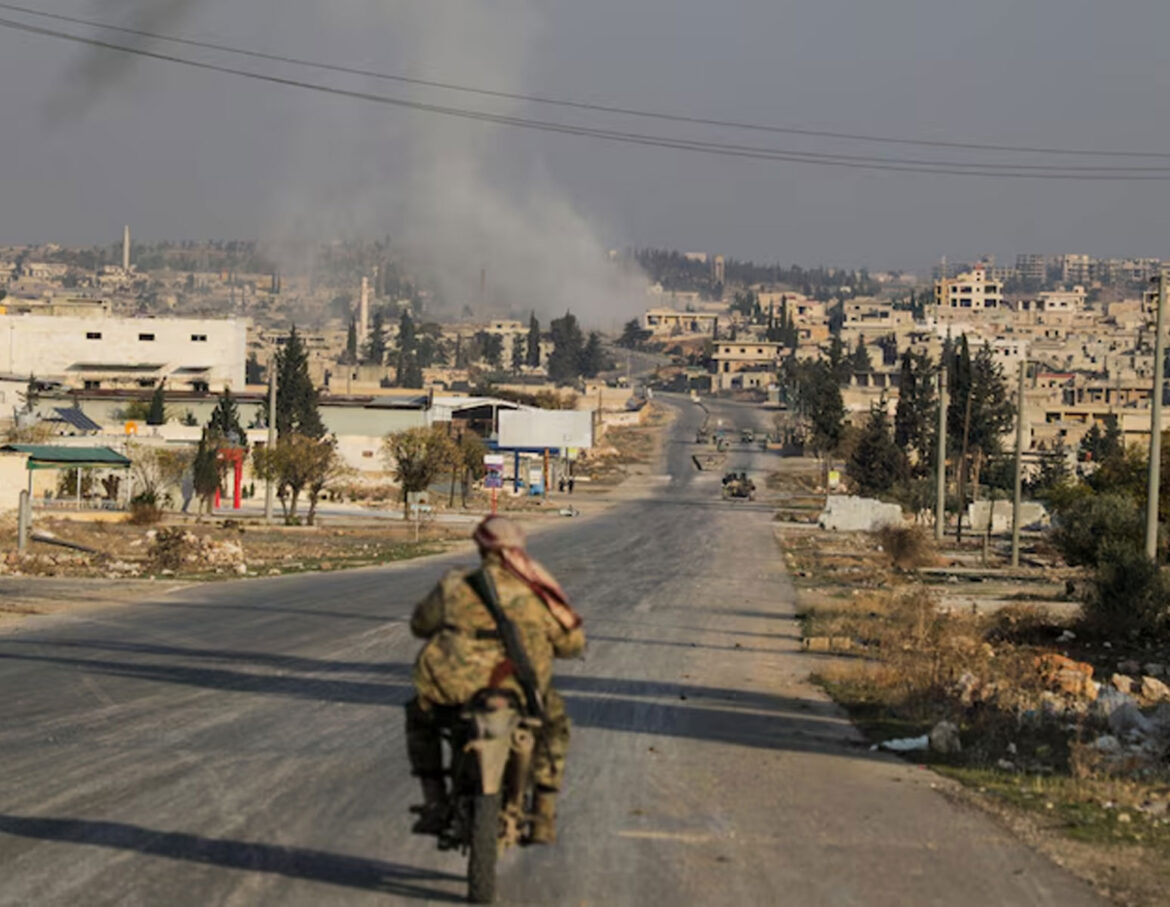Aleppo, Syria — The United States on Saturday attributed the loss of Aleppo by Syrian President Bashar al-Assad’s forces to his dependency on Russia and Iran, coupled with the regime’s resistance to a 2015 UN-backed peace process.
National Security Council spokesman Sean Savett remarked, “Syria’s reliance on Russia and Iran, along with its refusal to progress with the UN Security Council’s peace roadmap, created the conditions now unfolding.” He emphasized that the U.S. had no role in the latest offensive led by the designated terrorist group Hay’at Tahrir al-Sham (HTS).
Aleppo Falls
For the first time since the Syrian conflict began in 2011, the rebel coalition has wrested control of Aleppo, the country’s second-largest city, from government forces, according to the Syrian Observatory for Human Rights. The jihadist-led HTS and allied factions executed a swift offensive starting Wednesday, seizing Aleppo’s airport and dozens of towns with minimal resistance.
While much of Aleppo is now under HTS control, some districts remain under Kurdish-led forces of the Syrian Democratic Forces (SDF), who hold semi-autonomous governance in the northeast.
The rebel advance has claimed over 370 lives, including at least 48 civilians. Russia retaliated with its first airstrikes on Aleppo since 2016, leaving behind scenes of devastation, with charred vehicles and casualties in rebel-controlled areas.
Strategic Shifts Amid Regional Tensions
This rapid territorial gain follows a fragile ceasefire in neighboring Lebanon between Israel and the Iran-backed Hezbollah group after two months of intense conflict. Damascus’s reliance on Hezbollah and Iranian-backed militias in Syria’s war has increasingly strained its resources.
Observers link the rebel push to a weakening of Iran’s influence and reduced Russian air support in Syria. Analyst Dareen Khalifa noted that the rebel coalition sees the offensive as part of a larger geostrategic realignment.
Aaron Stein of the Foreign Policy Research Institute highlighted the fragility of Assad’s regime, stating, “Russia’s presence has thinned out considerably, and quick reaction airstrikes have limited impact. This advance underscores how weak the regime is.”
International Reactions
Iran’s Foreign Minister Abbas Araghchi pledged continued support to Syria, labeling the rebel offensive a “plot by the U.S. and Israel.” Meanwhile, Assad vowed to crush the rebellion, stating, “Terrorism only understands the language of force.”
Russia expressed concern over the regime’s losses and reaffirmed support for Syria’s sovereignty in talks with Iran and Turkey.
Outlook
As Damascus regroups to fortify positions south of Aleppo, the broader implications of this rebel victory—set against shifting regional alliances and declining foreign support—may reshape Syria’s future.
This marks a dramatic turn in Syria’s decade-long conflict, potentially opening a new chapter of instability and reshuffling the balance of power in the region.



